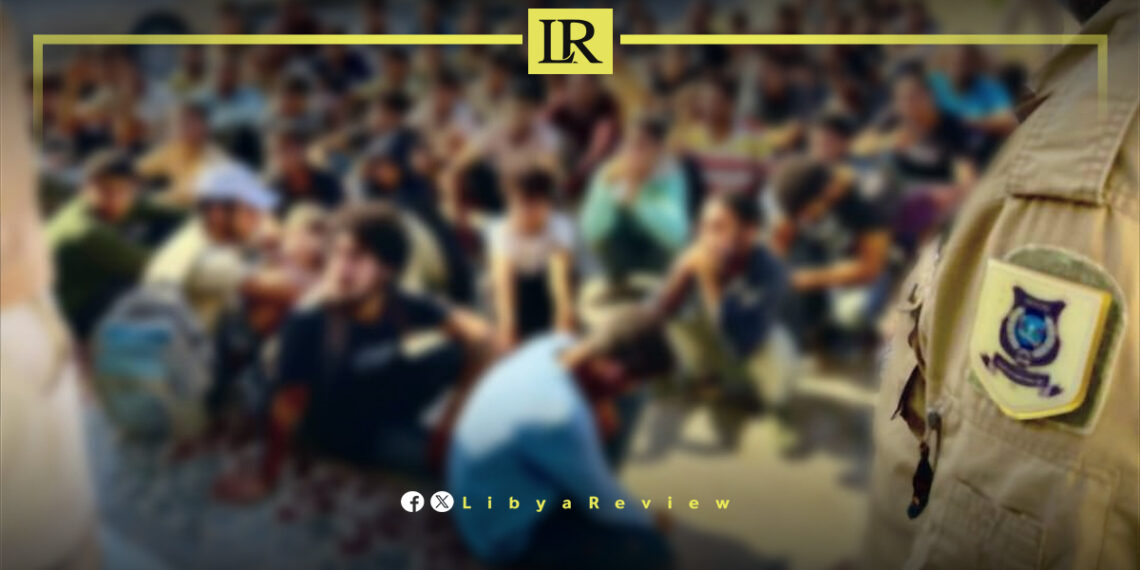On Monday, the Anti-Illegal Immigration Agency – Benghazi Branch announced that it had detained several undocumented migrant workers from various nationalities during security operations across the city.
The actions, conducted in coordination with the 20th Infantry Battalion, targeted individuals who entered Libya without legal documentation.
The detained migrants have been transferred to the Qanfouda Detention and Deportation Center, where authorities are initiating procedures for their repatriation.
These measures align with directives issued by Major General Salah Al-Khafifi, head of the Anti-Illegal Immigration Agency, as part of an ongoing effort to enhance security cooperation and enforce immigration laws.
Libya’s geographical position along the Mediterranean makes it a key transit and destination country for migrants from Africa and the Middle East seeking opportunities in Europe. However, the influx of undocumented migrants has presented significant challenges for Libyan authorities, including border control, security concerns, and the strain on limited resources.
International organizations, including the International Organization for Migration (IOM) and the United Nations High Commissioner for Refugees (UNHCR), have called for Libya to ensure the humane treatment of migrants and to address migration challenges through a combination of legal reforms and international cooperation.
The recent operation in Benghazi underscores the urgency of addressing irregular migration in Libya. However, the complexity of the issue requires more than just enforcement. Regional and international collaboration is essential to tackle the root causes of migration, dismantle trafficking networks, and provide migrants with safe and legal pathways.
As Libya continues its efforts to maintain security and enforce immigration laws, striking a balance between these measures and upholding the rights and dignity of migrants remains a pressing challenge. Through coordinated action and enhanced support from international partners, Libya can work toward a migration framework that is both secure and humane.


